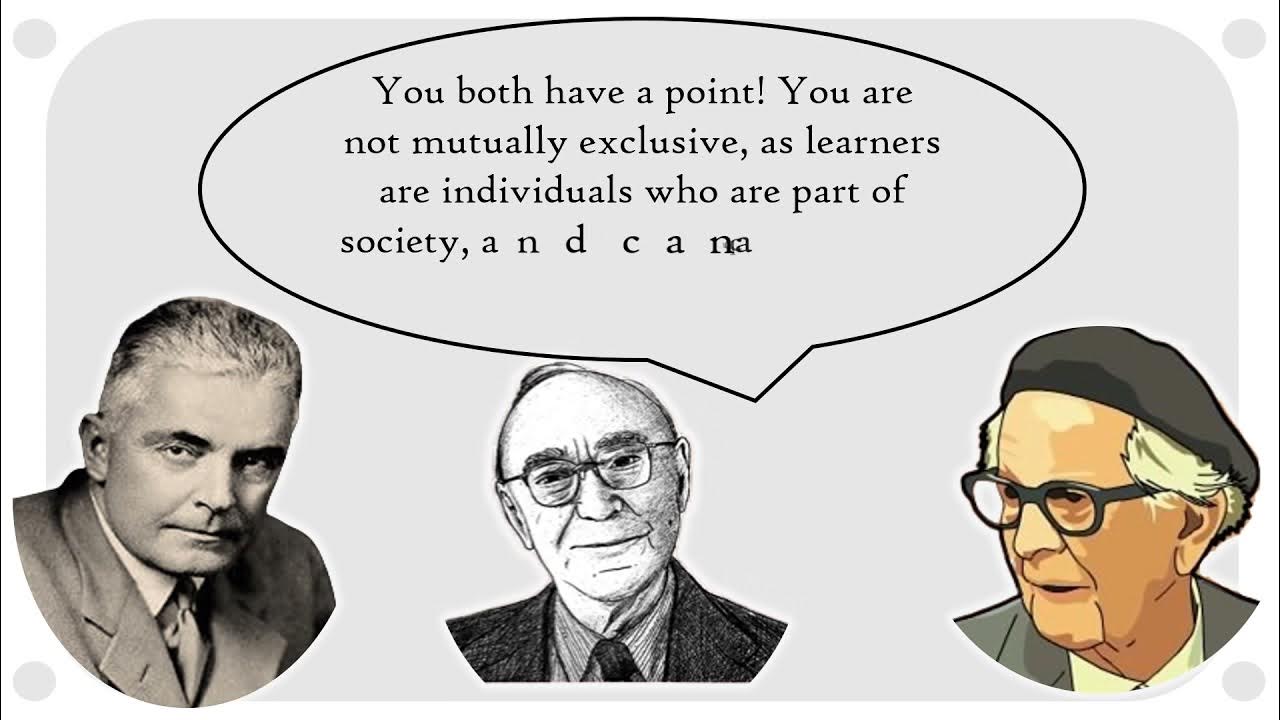Module 3.1 Theories of learning mathematics
Summary
TLDRThis session discusses different theories of learning mathematics, highlighting how understanding these theories can enhance teaching effectiveness. The speaker outlines four major learning theories: behaviorist, developmentalist, constructivist, and social theories, each influencing how mathematics is taught. The importance of aligning teaching strategies with these theories is emphasized, as well as understanding age-appropriate and individual-appropriate learning approaches. The session also touches on alternative methods like realistic mathematics, which focuses on real-world experiences and number sense before formal concepts. Educators are encouraged to reflect on their own teaching philosophy for coherence in their methods.
Takeaways
- 🧠 A strong theory helps us conceptualize learning processes, offering explanatory power and aiding in planning effective teaching strategies.
- 🔢 Mathematics education is influenced by four major learning theories: behaviorism, developmentalism (Piaget), constructivism, and social learning.
- 🛠 Behaviorist theory emphasizes reinforcement, practice, and memorization, commonly seen in the way students learn through drills like multiplication tables.
- 🏗 Developmentalist theory, influenced by Piaget, highlights different learning stages based on age, such as sensory-motor, pre-operational, and concrete operational stages.
- 🔨 Constructivist theory focuses on students creating meaning through interaction with others and engaging with concrete objects like blocks and counters.
- 👥 Social learning theory views learning as a social process, where group work, communication, and problem-solving are key to negotiating meaning.
- 👶 In early childhood education, play-based learning (guided rather than free play) is important, with influences from Reggio Emilia, Montessori, and Steiner methods.
- 📊 Age-appropriateness in learning activities is based on Piaget's predictable development stages, while individual appropriateness caters to the unique needs of each child.
- 🇳🇱 Realistic mathematics education from the Hans Freudenthal Institute emphasizes number sense and realistic, real-world problem solving, delaying formal place value instruction.
- 🎯 A coherent approach to understanding how children learn mathematics is a key factor in effective teaching, distinguishing good teachers from average ones.
Q & A
What is the main purpose of discussing different theories of learning mathematics in this session?
-The main purpose is to help conceptualize what's happening in mathematical learning, provide explanatory power, and aid in planning how to teach effectively.
What are the four dominant theories of learning mathematics mentioned in the session?
-The four dominant theories are: behaviorist theory, developmentalist theory, constructivist theory, and social theories of learning.
How does the behaviorist theory apply to learning mathematics?
-In behaviorist theory, learning mathematics is reinforced through practice and repetition. The idea is that repeated actions and rewards (like praise) help students internalize concepts, similar to Pavlov's dog experiment.
What is a 'hierarchy of learning' in mathematics, according to the session?
-A hierarchy of learning is the idea that mathematical concepts are learned in a sequential order, where understanding one concept is necessary before moving on to the next. For example, learning single-digit numbers before understanding larger numbers and fractions.
How does Piaget's developmentalist approach apply to early mathematics education?
-Piaget's developmentalist approach defines stages of cognitive development (e.g., sensory-motor, pre-operational, concrete operational) and suggests that learning activities should be appropriate for the child’s developmental stage, guiding how mathematics is taught to young children.
What does the constructivist theory emphasize in the context of mathematics education?
-Constructivist theory emphasizes that students create meaning by interacting with concrete objects and through social engagement, often using manipulatives like blocks or counters to explore mathematical concepts.
What are the main differences between behaviorist and social theories of learning?
-Behaviorist theory focuses on individual learning through reinforcement and practice, often involving memorization and drill. Social theories of learning, on the other hand, emphasize group work, problem-solving, and the importance of learning in a social context.
What is 'free play' in early childhood mathematics education, and how is it guided?
-Free play refers to activities where children are allowed to explore concepts on their own. However, teachers subtly guide these activities to ensure they are aligned with specific learning outcomes, such as skip counting or number sense.
What is 'realistic mathematics,' and how does it differ from traditional teaching methods?
-Realistic mathematics, developed by the Hans Freudenthal Institute, focuses on progressively mathematizing concepts grounded in real-world experiences. Unlike traditional methods, it delays introducing abstract concepts like place value until later, focusing first on number sense.
Why is having a coherent approach to teaching mathematics important for educators?
-A coherent approach ensures that a teacher’s methods are consistent and effective. Studies show that successful mathematics teachers have a clear understanding of how children learn mathematics, which helps them provide structured and meaningful learning experiences.
Outlines

Dieser Bereich ist nur für Premium-Benutzer verfügbar. Bitte führen Sie ein Upgrade durch, um auf diesen Abschnitt zuzugreifen.
Upgrade durchführenMindmap

Dieser Bereich ist nur für Premium-Benutzer verfügbar. Bitte führen Sie ein Upgrade durch, um auf diesen Abschnitt zuzugreifen.
Upgrade durchführenKeywords

Dieser Bereich ist nur für Premium-Benutzer verfügbar. Bitte führen Sie ein Upgrade durch, um auf diesen Abschnitt zuzugreifen.
Upgrade durchführenHighlights

Dieser Bereich ist nur für Premium-Benutzer verfügbar. Bitte führen Sie ein Upgrade durch, um auf diesen Abschnitt zuzugreifen.
Upgrade durchführenTranscripts

Dieser Bereich ist nur für Premium-Benutzer verfügbar. Bitte führen Sie ein Upgrade durch, um auf diesen Abschnitt zuzugreifen.
Upgrade durchführenWeitere ähnliche Videos ansehen
5.0 / 5 (0 votes)






